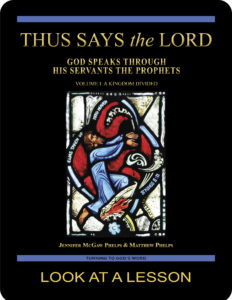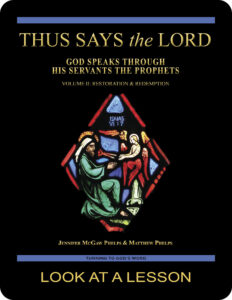fear & awe
 In the Gospel According to Mark 4:35–41 (NABRE), Jesus calms the sea. After having done so, he rebukes his followers for having been afraid. They respond to this event by being filled with fear or awe. There’s an interesting interplay in this passage between different types of fear responses that’s easy to miss in translation.
In the Gospel According to Mark 4:35–41 (NABRE), Jesus calms the sea. After having done so, he rebukes his followers for having been afraid. They respond to this event by being filled with fear or awe. There’s an interesting interplay in this passage between different types of fear responses that’s easy to miss in translation.
In Jesus’ rebuke of his disciples, he asks them why they were so fearful. The word used is δειλός (deilos). This word is only used in the New Testament in three places, and each one pairs it with a sense of unbelieving. This sort of fear seems to be in some way the opposite of faith. It pulls us away from trusting in God and consumes us.
By contrast, once the storm is settled, the response the disciples feel is a different kind of fear or even awe. The Greek word used is φοβέω (phobeo). This is a much more standard word for fear. It’s used more than 90 times in the New Testament and shows up in a lot of contexts in exactly the same context we’d see the English word fear. Interestingly, this sort of fear seems to be able to also contain a sense of reverence or awe that can even support and encourage faith.
Consider how fear can either lead us toward or away from God. What do you think determines which happens? How can we keep fear from damaging our relationship with God?
related topic: fear of the LORD
you also may like our two-part study of the prophets

 Thus Says the LORD: God Speaks Through His Servants the Prophets—Volume I: A Kingdom Divided examines the prophets in their historical context using the First and Second Books of the Kings and other Old Testament passages written before the Babylonian Exile in 586 B.C. Volume II: Restoration & Redemption looks at the post-exilic prophets. This 51-lesson Catholic Bible study builds on The United Kingdom of Israel: Saul, David & Solomon Foreshadow Christ the King. Click on the books’ covers to view a sample lesson from each volume.
Thus Says the LORD: God Speaks Through His Servants the Prophets—Volume I: A Kingdom Divided examines the prophets in their historical context using the First and Second Books of the Kings and other Old Testament passages written before the Babylonian Exile in 586 B.C. Volume II: Restoration & Redemption looks at the post-exilic prophets. This 51-lesson Catholic Bible study builds on The United Kingdom of Israel: Saul, David & Solomon Foreshadow Christ the King. Click on the books’ covers to view a sample lesson from each volume.
 Click on the picture of the statue of Moses with horns (above) to learn more about Lost in Translation. A new entry is archived each Monday. Contact us to receive Lost in Translation by email every week. You may use any of the contact links on our website to ask Matthew a question.
Click on the picture of the statue of Moses with horns (above) to learn more about Lost in Translation. A new entry is archived each Monday. Contact us to receive Lost in Translation by email every week. You may use any of the contact links on our website to ask Matthew a question.
